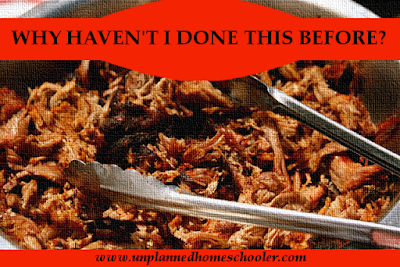My youngest daughter loves all the same foods, and it’s a lot of fun to watch her dig into a home cooked Thanksgiving dinner with enthusiasm. But my twins really aren’t fans of the traditional Thanksgiving meal. In fact, about the only thing they really like are the freshly baked hot rolls, turkey and mashed potatoes. So what do I do to make sure my kids have enough to eat on Thanksgiving while everyone else feasts on foods that they really don’t like.
Have your kids try just one bite
Tastes change over the years. Also, some people may make a traditional dish in a new way your kids will love. I didn’t much care for sweet potatoes growing up, but now they are one of my favorites. I began to like them when I tried a sweet potato casserole with marshmallow topping and nuts. Instead of forcing picky eaters to choke down a whole serving of something they dislike, have them try just one bite of lots of foods, just to see if they find a new favorite this year.
Add some kid friendly foods to the feast
Whether you are cooking at home or visiting family or friends, an extra dish is almost always welcome at the table. Maybe your kids can’t stand turkey, but they like thinly sliced ham and pepperoni, fruit and cheese cubes like they might eat for lunch. Go ahead and bring a deli tray to share, piled extra high with the meats they like.
Or try making a bunch of homemade appetizers, like sausage balls or pigs in blankets. Just make sure to bring something your kids will definitely enjoy.
Repurpose the ingredients
Maybe your kids would be more likely to eat a turkey slider than a serving of turkey and gravy. Try repurposing some of the Thanksgiving ingredients already on the table in a creative way that your kids will enjoy. A hot roll topped with some thinly sliced turkey and a bit of cheese with just one or two small sides is more kid friendly than a plate mounded with unfamiliar foods.
Give kids their own space
There really is something to be said for the kids’ table at big dinners like Thanksgiving. Not only does it give youngsters a chance to eat with people their own size, it gives adults a chance to enjoy a meal with other grown-ups. Besides, your picky eaters may be more likely to try a new food if they see their friends enjoying it.
Don’t make a big deal
Thanksgiving dinner is just one meal out of the year. Seriously, it’s only as big a deal as we choose to make it. If your child sees that you are stressed out over their picky eating, they may have an even harder time finishing what is on their plate.
It’s far better to enjoy your own Thanksgiving feast and let your child eat a peanut butter and jelly sandwich if that’s what they want than to stress out and ruin the festivities for everyone.
Don’t make a big deal out of dinner, and don’t let others make your child feel bad, either. It’s no one’s fault that they don’t like certain foods, even at a meal as yummy as Thanksgiving.














